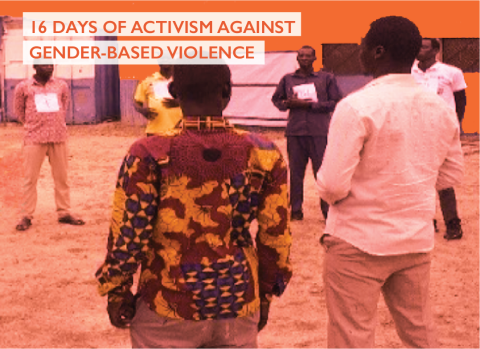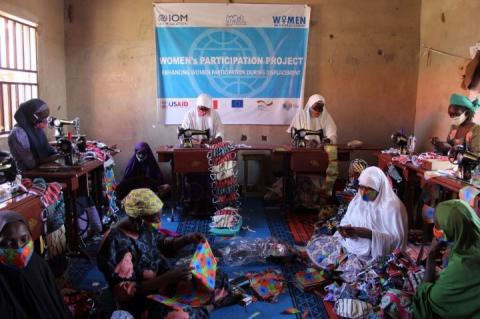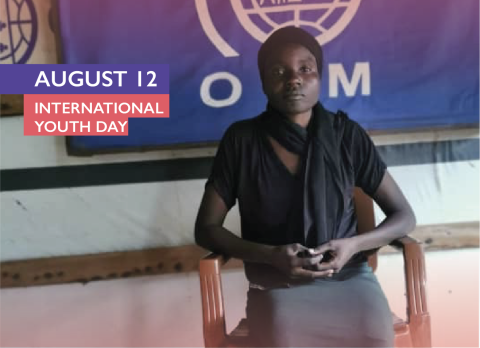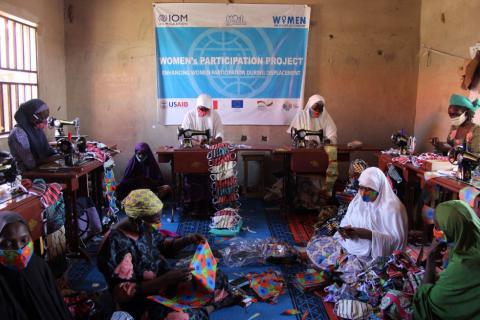Geneva — Even before the COVID-19 pandemic, women internally displaced by conflict or disasters already faced significant barriers in accessing job opportunities, healthcare and education. Public health restrictions imposed worldwide, moreover, increased many of the vulnerabilities and protection risks faced by women, girls, elderly persons and persons with disabilities.
Groups-at-risk often have less access to lifesaving information and less opportunities to participate in camp-life. Although women and girls frequently comprise the majority of most displaced populations, their participation in decision-making traditionally has been minimal.
Yet in some camps, or camp-like settings hosting thousands of displaced people, women have begun taking on important leadership roles to make sure these groups are not overlooked.
Through meaningful, inclusive and representative processes, more women in camps are participating in decision-making and camp governance structures — processes that are imperative for good camp management and a more effective response to humanitarian crises.
It is also a crucial mechanism to ensure humanitarian actors remain accountable, first and foremost, to affected populations.
When women become active decision-makers, they are given more agency to voice concerns about their safety and health — especially regarding ways the humanitarian community can better prevent or mitigate incidents of gender-based violence and other protection risks.
They also become more aware of their rights and become stronger advocates for greater inclusion and representation.
In the current context, women have been essential in ensuring their communities — especially the most vulnerable — have access to services and information they need to prevent the spread of the COVID-19 virus. The IOM-led Women’s Participation Project aims to bring more women to the centre of the humanitarian community’s response to the pandemic in five countries: Bangladesh, Ethiopia, Nigeria, Somalia and South Sudan
Meet some of the women paving the way and leading the response to COVID-19 in displacement settings around the world.
SOUTH SUDAN

Photo: IOM South Sudan
Twenty-nine internally displaced women, including 11 women with disabilities, learned to sew masks in Naivasha IDP Camp in South Sudan which then were distributed to community members helping curb the spread of COVID-19.

Photo: IOM South Sudan
“With the new skills I learned during training, everybody is reaching out to me to learn how these masks are produced. That has given me more weight and value in my community. The income I earn from selling the masks also has allowed me to improve my small business,” said one female participant.
SOMALIA

Photo: IOM Somalia
Women in an IDP camp in Dollow, Somalia sewed face masks and decided collectively to distribute the first batch free of charge to at-risk groups. Subsequent batches were sold in a local market.

Photo: IOM Somalia
“Creating face masks not only helped me fight against COVID-19 in our IDP sites, but also helped me gain the skills to provide my family an income. We are making masks to help people — children and the entire community — protect themselves from the COVID-19,” said one woman.

Photo: IOM Somalia
Women’s groups in Somalia have been working closely with the community and Imams representing 200 mosques to provide cleaning materials and raise awareness about COVID-19 prevention. This has helped curb the spread of the virus among Somali communities.
“We are very grateful for women’s roles within the community in such crucial times. These efforts are not only meant for women but are very essential and inclusive for all genders,” said one Imam.
BANGLADESH

Photo: IOM Bangladesh
With restrictions and lockdowns enforced by the Government of Bangladesh in response to the pandemic, the Women’s Committee in Cox’s Bazar has been on the forefront of the COVID-19 preparedness and response in the camp. After receiving training, they have educated over 85,000 of their community members on COVID-19 symptom identification and management, prevention measures, referral mechanisms and ways to avert rumours and stigmatization.

Photo: IOM Bangladesh
IOM has received increased reports of gender-based violence and protection incidents in Cox’s Bazar. Through remote consultations with the Women’s Committee, women have been trained in coping with stress– an effort organised by Site Management and Protection teams to provide key information related to protection and GBV services, COVID19 messaging and some self-care exercises.
NIGERIA

Photo: IOM Nigeria
The Women’s Participation Project expanded to Gubio Camp in Maiduguri, Nigeria. During consultations with the women’s groups, the production of non-medical facemasks was identified as a key to curb the spread of COVID-19. Forty women received training and produced more than 8,000 face masks.
ETHIOPIA

Photo: IOM Ethiopia
The Women’s Committee in Kersa IDP Site has been at the forefront of community engagement and ensuring COVID-19 prevention measures are respected during distributions of emergency items and cleaning materials to the internally displaced community.
The Women’s Participation Project began in 2015 as part of the ‘Safe from the Start’ Initiative, managed by the Global Camp Coordination and Camp Management (CCCM) Support team at IOM HQ. With the objective to improve women’s participation and representation in displacement, mainstreaming prevention and mitigation of GBV in camp management operations, the Women’s Participation Project has been implemented in 9 countries in the last five years including Ecuador, Bangladesh, South Sudan, Somalia and Nigeria.
To learn more about the Women’s Participation Project, visit the Women in Displacement Platform.
Read the full article here!




